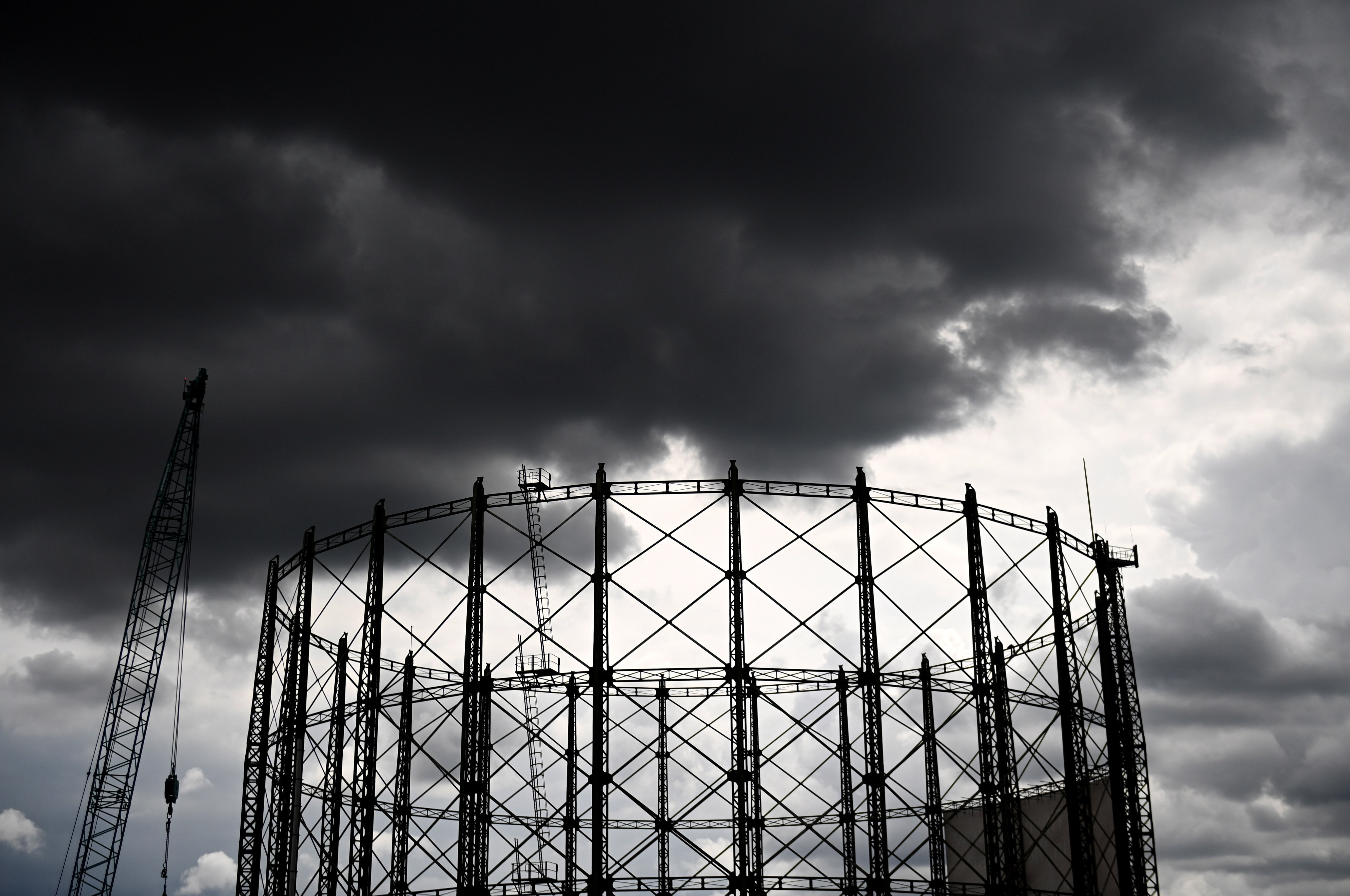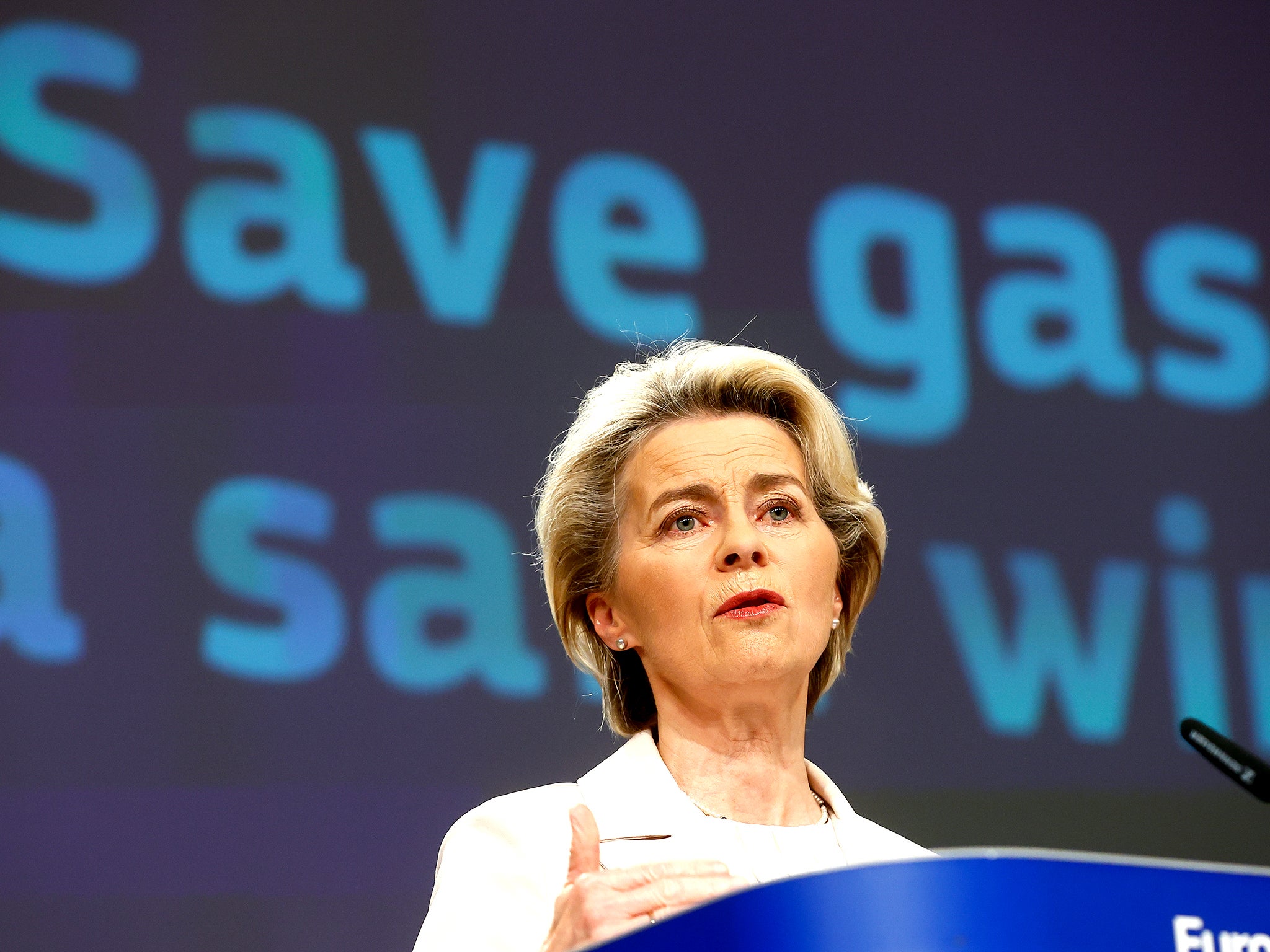European gas prices soar after Russia cuts supplies to Germany
Market nears March record as pressure builds on continent


European gas prices have surged after Russia further cut supplies on its biggest pipeline serving the continent.
Market observers recorded a 9 per cent rise in gas prices on Wednesday, near the all-time high reached in March shortly after Russia invaded Ukraine.
Kremlin-owned energy provider Gazprom cut supplies on the Nord Stream 1 pipeline to 20 per cent of capacity on Wednesday.
The move was viewed by the European Union as an attempt to pressure the bloc to lift sanctions brought against Vladimir Putin’s regime for the invasion of Ukraine.
Russia previously shut off gas to 12 European countries and Nord Stream 1, which runs west through the Baltic Sea to Germany, had already been at 40 per cent capacity for weeks.
Gazprom announced on Monday that supplies on the pipeline would be halved, blaming Western sanctions for blocking the delivery of repair parts from Canada.
On Wednesday, Klaus Mueller, head of Germany’s gas network regulator, confirmed the reduction.

“Gas is now a part of Russian foreign policy and possibly Russian war strategy,” Mr Mueller told Deutschlandfunk radio.
Climbing energy prices are fuelling inflation, further squeezing people’s spending power and raising concern that Europe could plunge into recession if it does not save enough gas to get through the cold months.
The EU has resolved to lower demand for gas by 15 per cent from August through March in order to bolster energy security over winter.
Member states agreed to cut consumption through voluntary steps but the agreement allows for mandatory measures if demand does not drop fast enough.
European leaders and analysts say the reductions are a pretext to try to divide EU countries and elevate prices.
States less reliant on Russian energy, such as Portugal and Spain, were reluctant to sign up to cut their own consumption.

The latest gas cuts will be acutely felt in Germany, where Russia has recently accounted for one-third of supplies.
Berlin said last week that the drop in gas flows confirmed that Germany cannot rely on Russian deliveries, announcing it would step up its gas storage requirements and take further measures to conserve supplies.
British consumers too are set to suffer due to the supply cuts. While the UK gets very little of its gas directly from Russia, the price paid here is determined by what happens across the continent.
Households could be faced with bills of up to £500 in January alone, according to a forecast issued after Wednesday’s cut.
BFY Group, a utilities consultancy, said the energy price cap on bills is expected to hit £3,850 between January and April next year – hundreds of pounds more than earlier predicted.
Join our commenting forum
Join thought-provoking conversations, follow other Independent readers and see their replies
Comments
Bookmark popover
Removed from bookmarks